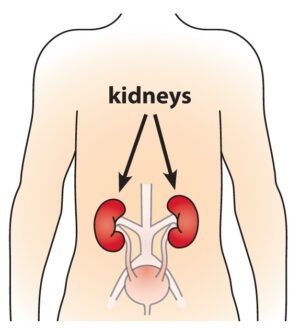Kidney disease is a global health challenge affecting millions of people worldwide. Chronic kidney disease (CKD) alone impacts nearly 10% of the population, often progressing silently until it reaches advanced stages. When it comes to treatment, early detection and comprehensive care can make a life-changing difference. For those battling severe conditions like kidney failure or seeking advanced transplantation options, choosing the right hospital is critical.
The top renal disease hospitals in 2025 reflect a blend of clinical excellence, cutting-edge research, and patient-focused care. Based on rankings from Newsweek’s World’s Best Specialized Hospitals, U.S. News & World Report, and SCImago Institutions Rankings, these hospitals represent the best destinations globally for kidney care.
10. Vanderbilt University Medical Center (Nashville, USA)
Specialty: Chronic Kidney Disease (CKD), Hypertension, and Dialysis
Ranked as one of the top nephrology hospitals in the U.S., Vanderbilt University Medical Center is widely respected for its comprehensive approach to chronic kidney disease (CKD). The hospital emphasizes early detection and management of CKD to prevent its progression to kidney failure. This is achieved through a combination of lifestyle counseling, nutritional support, and innovative medication therapies.
View this post on Instagram
One of Vanderbilt’s strengths lies in its collaborative approach. Patients benefit from access to a multidisciplinary care team that includes nephrologists, cardiologists, endocrinologists, and dietitians. By addressing underlying health conditions like diabetes and high blood pressure, Vanderbilt helps improve overall kidney health. The hospital is also recognized for its expertise in managing dialysis patients and preparing candidates for kidney transplantation.
9. Cedars-Sinai Medical Center (Los Angeles, USA)
Specialty: Kidney Transplantation, Rare Kidney Disorders, and Dialysis
Cedars-Sinai Medical Center has earned a reputation for excellence in kidney care, ranking among the top nephrology programs in the U.S. The hospital provides comprehensive care for kidney failure, CKD, and related complications, including cardiovascular issues and metabolic disorders.
View this post on Instagram
Cedars-Sinai is particularly known for its kidney transplant program, which offers both living-donor and deceased-donor transplant options. The hospital’s transplant surgeons are experts in minimally invasive techniques that reduce recovery time and improve long-term outcomes. In addition to transplantation, Cedars-Sinai offers advanced treatments for rare kidney disorders, including genetic kidney diseases and autoimmune-related nephritis.
The hospital’s state-of-the-art dialysis center provides a range of options, from in-center hemodialysis to home-based therapies. This flexibility allows patients to choose the treatment approach that best fits their lifestyle.
8. UCSF Medical Center (San Francisco, USA)
Specialty: Translational Research, Kidney Regeneration, and Clinical Trials
UCSF Medical Center is a leader in translational research, which means it focuses on rapidly turning scientific discoveries into real-world treatments. This emphasis on innovation has made UCSF a top destination for patients seeking cutting-edge therapies for kidney disease.
View this post on Instagram
The hospital is involved in groundbreaking research on kidney regeneration, biomarkers for early CKD detection, and the use of artificial intelligence (AI) in nephrology. Patients at UCSF often have access to clinical trials and experimental treatments that may not be available elsewhere.
UCSF’s nephrology team is known for its expertise in managing complex kidney conditions, including polycystic kidney disease (PKD), lupus nephritis, and kidney cancer. The hospital also offers a robust kidney transplant program with high success rates and comprehensive post-transplant care.
7. Massachusetts General Hospital (Boston, USA)
Specialty: Kidney Transplantation, Metabolic Disorders, and Glomerular Diseases
Massachusetts General Hospital (MGH) has a long history of excellence in nephrology, particularly in the area of kidney transplantation. The hospital’s Kidney Transplant Program is one of the largest and most respected in the U.S., known for its innovative surgical techniques and high transplant success rates.
View this post on Instagram
In addition to transplantation, MGH offers a full range of nephrology services, including dialysis, CKD management, and treatment for glomerular diseases (conditions that affect the kidney’s filtering units). The hospital’s nephrology team works closely with specialists in cardiology, endocrinology, and rheumatology to provide holistic care for patients with complex kidney-related conditions.
MGH is also involved in cutting-edge research on metabolic disorders that can lead to kidney disease, such as diabetes and hypertension. By focusing on early intervention and lifestyle modifications, the hospital aims to slow the progression of CKD and improve patients’ quality of life.
6. Brigham and Women’s Hospital (Boston, USA)
Specialty: Kidney Transplantation, Metabolic Bone Disease, and Personalized Medicine
Brigham and Women’s Hospital is a global leader in kidney transplantation and the treatment of metabolic disorders that can contribute to kidney disease. The hospital’s nephrology team is particularly skilled in managing complex cases, such as patients with diabetes, autoimmune diseases, or rare genetic kidney conditions.
View this post on Instagram
One of Brigham and Women’s key strengths is its focus on personalized medicine. By using genetic testing, advanced imaging studies, and other diagnostic tools, the hospital tailors treatments to each patient’s unique needs. This approach helps improve outcomes, reduce the risk of complications, and enhance patients’ overall quality of life.
The hospital also offers specialized clinics for conditions like metabolic bone disease, which can develop as a result of kidney disease. Through a combination of medication, dietary counseling, and lifestyle modifications, Brigham and Women’s helps patients manage these complications and maintain their overall health.
5. Cleveland Clinic (Ohio, USA)
Specialty: Dialysis Innovation, Kidney Cancer, and Chronic Kidney Disease
Cleveland Clinic is widely recognized for its expertise in managing complex kidney conditions, including end-stage renal disease (ESRD) and kidney cancer. The hospital offers a range of dialysis options, including in-center hemodialysis, home dialysis, and nocturnal dialysis, allowing patients to choose the approach that best fits their lifestyle.
View this post on Instagram
In addition to its clinical care, Cleveland Clinic is involved in cutting-edge research on topics like dialysis innovation, kidney cancer, and the role of inflammation in CKD. This commitment to research helps ensure that patients receive the most up-to-date treatments and technologies.
The hospital’s multidisciplinary approach to kidney care means that patients have access to a wide range of specialists, including nephrologists, transplant surgeons, oncologists, and dietitians. This collaborative model helps improve outcomes and enhance patients’ quality of life.
4. Johns Hopkins Hospital (Baltimore, USA)
Specialty: Chronic Kidney Disease, Acute Kidney Injury, and Kidney Transplantation
Johns Hopkins Hospital is renowned for its Nephrology Division, which offers cutting-edge treatments for chronic kidney disease, acute kidney injury, and glomerular diseases. The hospital’s nephrology team uses advanced diagnostic tools, including genetic testing and biomarker analysis, to identify the underlying causes of kidney disease and develop targeted treatment plans.
View this post on Instagram
Johns Hopkins is also a leader in kidney transplantation, with a high success rate for both living-donor and deceased-donor transplants. The hospital’s transplant surgeons are experts in minimally invasive techniques that reduce recovery time and improve long-term outcomes.
In addition to its clinical care, Johns Hopkins is involved in groundbreaking research on kidney disease. Recent studies have focused on the impact of gut bacteria on kidney health, the development of new medications for CKD, and the use of wearable devices to monitor kidney function in real-time.
3. UCLA Medical Center (Los Angeles, USA)
Specialty: Personalized Care, Kidney Transplantation, and Preventive Nephrology
UCLA Medical Center is known for its personalized approach to kidney care. The hospital’s nephrology team uses advanced diagnostics, including genetic testing and imaging studies, to develop targeted treatment plans for patients with CKD, ESRD, and other kidney-related conditions.
View this post on Instagram
One of UCLA’s standout programs is its Kidney Health Program, which focuses on preventing kidney disease through lifestyle interventions, early detection, and patient education. By addressing risk factors like obesity, high blood pressure, and diabetes, the program helps patients maintain kidney function and avoid dialysis.
UCLA also offers a robust kidney transplant program with high success rates and comprehensive post-transplant care.
2. NewYork-Presbyterian Hospital – Columbia and Cornell (New York, USA)
Specialty: Chronic Kidney Disease, Acute Kidney Injury, and Cutting-Edge Transplant Techniques
NewYork-Presbyterian Hospital, a powerhouse in nephrology, ranks among the top institutions for kidney care and research. The hospital benefits from the combined expertise of two world-renowned medical schools: Columbia University Vagelos College of Physicians and Surgeons and Weill Cornell Medicine. Together, these institutions provide patients with access to the latest advancements in nephrology and kidney transplantation.
View this post on Instagram
One of the key strengths of NewYork-Presbyterian is its innovative transplant program. The hospital has pioneered techniques in kidney transplantation, including desensitization protocols for patients with incompatible donors and the use of paired kidney exchanges to expand donor options. These groundbreaking approaches have helped improve transplant accessibility and outcomes for high-risk patients.
In addition to its transplant expertise, NewYork-Presbyterian offers comprehensive care for patients with chronic kidney disease (CKD), acute kidney injury (AKI), and glomerular diseases. The hospital’s multidisciplinary care teams include nephrologists, cardiologists, endocrinologists, and nutritionists who work together to manage the full spectrum of kidney-related conditions.
The hospital also emphasizes preventive nephrology, helping at-risk patients avoid kidney failure through lifestyle interventions, medication management, and regular monitoring of kidney function. This proactive approach has been shown to slow the progression of CKD and improve patients’ overall health and well-being.
1. Mayo Clinic (Rochester, Minnesota, USA)
Specialty: Comprehensive Kidney Disease Management, Transplantation, and Research Leadership
For 28 consecutive years, the Mayo Clinic has been ranked #1 in nephrology by U.S. News & World Report – and for good reason. The Mayo Clinic’s Division of Nephrology and Hypertension is a global leader in kidney care, offering a full range of services, from early detection and management of chronic kidney disease (CKD) to advanced kidney transplantation.
What sets the Mayo Clinic apart is its commitment to patient-centered care. Every patient at the Mayo Clinic is treated by a multidisciplinary team that includes nephrologists, transplant surgeons, endocrinologists, and dietitians. This collaborative approach ensures that each patient receives a personalized treatment plan tailored to their specific needs and health goals.
View this post on Instagram
The Mayo Clinic is also a leader in kidney research, with ongoing studies focused on kidney regeneration, artificial kidney development, and the role of inflammation in CKD progression. Patients at the Mayo Clinic often have access to clinical trials and experimental therapies that are not available at other hospitals.
The hospital’s kidney transplant program is one of the most respected in the world, known for its high success rates, short wait times, and innovative surgical techniques. Mayo Clinic surgeons are experts in minimally invasive procedures, which reduce recovery time and improve long-term outcomes for transplant recipients.
In addition to its clinical care and research, the Mayo Clinic is committed to educating the next generation of nephrologists. The hospital’s nephrology fellowship program is one of the most competitive in the U.S., attracting top medical graduates from around the world. This emphasis on education helps ensure that the Mayo Clinic remains at the forefront of kidney care for years to come.
Final Thoughts: Choosing the Right Hospital for Kidney Care
For patients with kidney disease, choosing the right hospital can be a life-changing decision. The top renal disease hospitals in 2025 offer more than just clinical expertise – they provide compassionate, patient-centered care, access to the latest treatments and technologies, and a multidisciplinary approach that addresses the full spectrum of kidney-related conditions.
Whether you are seeking early detection and preventive care, dialysis management, or advanced transplantation options, these hospitals represent the best of the best in kidney care. By staying informed and proactive about your kidney health, you can take control of your condition and improve your long-term health and well-being.
For those considering international options or seeking specialized care not available in their home country, it’s worth exploring broader global rankings, such as Newsweek’s World’s Best Specialized Hospitals and SCImago Institutions Rankings, to find the best fit for your needs.
Kidney disease may be challenging, but with the right care and support, it’s possible to live a healthy, fulfilling life.


